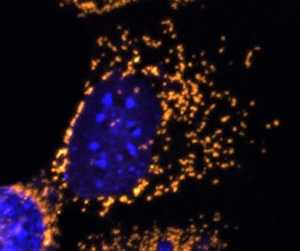Author Interviews, Cognitive Issues, Memory / 07.08.2023
Pleasant Odors Used to Improve Memory Performance in Older Adults
MedicalResearch.com Interview with:
Michael Leon, Professor emeritusDepartment of Neurobiology and BehaviorCenter for the Neurobiology of Learning and MemoryInstitute for Memory Impairments and Neurological DisordersUniversity of California Irvine
MedicalResearch.com: What is the background for this study? What types of aromas were employed?
Response: The olfactory system is the only sense to have a direct “superhighway” access to the memory centers of the brain. The other senses can contribute to the health of the memory centers, but they have to take the brain's “side streets” to get there and consequently have much less impact on the health of those centers.
If there is olfactory loss for any reason, the memory centers start to deteriorate. Stimulation of those memory centers with odors allows those centers to allow for better memory.
We used naturally occurring pleasant odors: rose, orange, eucalyptus, lemon, peppermint, rosemary, and lavender.
(more…)




 Response: Cigarette smoking is one of the well-established causes of periodontitis, but the effect of using electronic cigarettes (e-cig), especially its long-term impact on periodontal health, is not yet clearly understood. Considering the increased popularity of e-cig use, especially among teenagers and young adults, and the known effect of high nicotine concentration in e-cigarette products, we conducted this clinical research to see if there were differences in periodontal health between e-cig users, traditional smokers, and nonsmokers. The study consisted of two visits, 6 months apart, where measures of oral and periodontal health were obtained.
Our data showed significantly greater clinical attachment loss in the e-cigarette users and cigarette smokers than in the non-smokers at both study visits. In only e-cigarette users, we observed an over 0.2 mm average increase in the clinical attachment loss after 6 months.
Response: Cigarette smoking is one of the well-established causes of periodontitis, but the effect of using electronic cigarettes (e-cig), especially its long-term impact on periodontal health, is not yet clearly understood. Considering the increased popularity of e-cig use, especially among teenagers and young adults, and the known effect of high nicotine concentration in e-cigarette products, we conducted this clinical research to see if there were differences in periodontal health between e-cig users, traditional smokers, and nonsmokers. The study consisted of two visits, 6 months apart, where measures of oral and periodontal health were obtained.
Our data showed significantly greater clinical attachment loss in the e-cigarette users and cigarette smokers than in the non-smokers at both study visits. In only e-cigarette users, we observed an over 0.2 mm average increase in the clinical attachment loss after 6 months. 